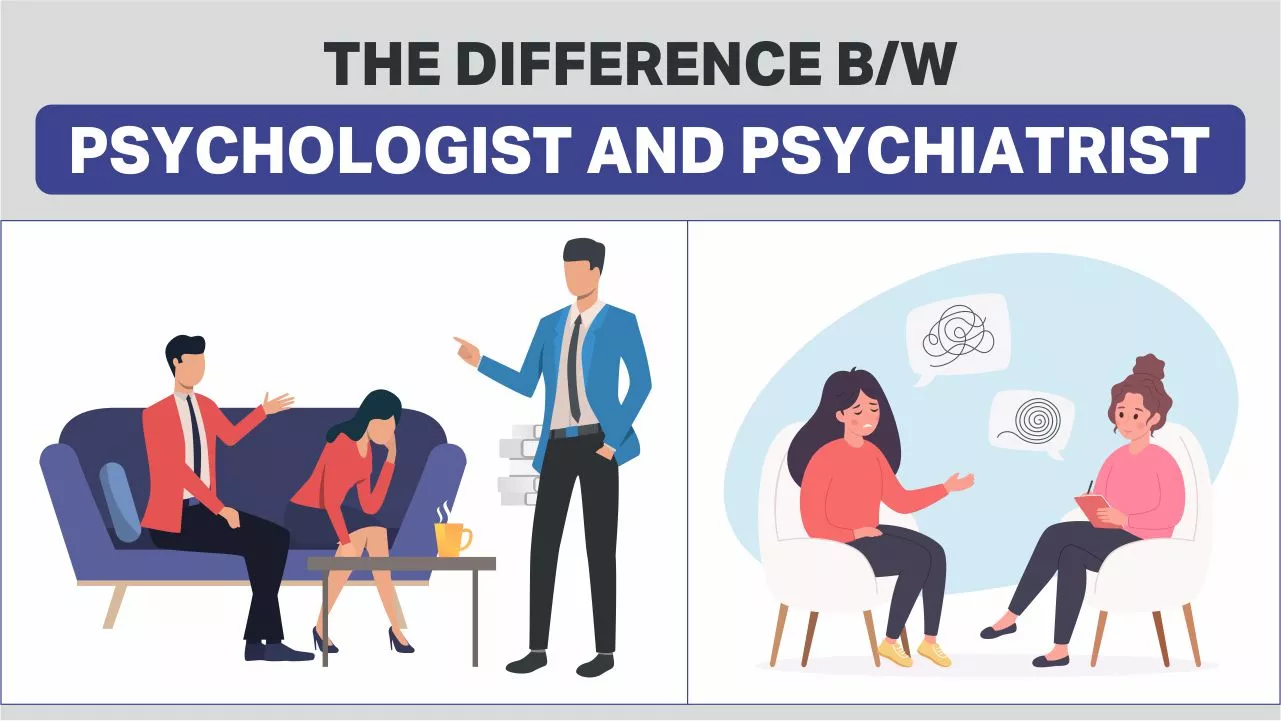Why the Best Psychologist in Delhi Can Change Your Psychological Wellness
Why the Best Psychologist in Delhi Can Change Your Psychological Wellness
Blog Article
Psych Therapy: A Comprehensive Overview to Outcomes and strategies

Cognitive-Behavioral Treatment
Cognitive-Behavioral Treatment (CBT) is a commonly made use of psychotherapeutic strategy that focuses on determining and changing dysfunctional thinking and habits patterns. Created in the 1960s by Aaron T. Beck, CBT integrates behavioral and cognitive theories to attend to numerous mental health problems, consisting of clinical depression, anxiousness, and stress-related disorders. The facility of CBT is that maladaptive thoughts add to emotional distress and maladaptive actions. By reorganizing these thoughts, people can attain substantial enhancements in their psychological health and daily performance.
CBT is defined by its structured, goal-oriented nature. Treatment usually involves a collaborative procedure between the therapist and client, where particular problems are recognized, and functional techniques are established to resolve them. Methods such as cognitive restructuring, exposure therapy, and skill-building workouts are generally utilized. Cognitive restructuring involves difficult and modifying unfavorable idea patterns, while direct exposure treatment aims to reduce concern and anxiousness via gradual exposure to been afraid circumstances or items.
Evidence-based research study supports the efficacy of CBT for a variety of emotional conditions - Best Psychologist in Delhi. Its emphasis on ability purchase and self-help methods encourages clients to proceed progress individually after treatment ends. The versatility and efficiency of CBT have actually made it a cornerstone in modern psychotherapeutic method
Psychodynamic Methods
Rooted in the very early theories of Sigmund Freud, psychodynamic strategies concentrate on checking out the subconscious mind and its influence on behavior and feelings. These methods aim to reveal hidden thoughts and feelings that may be driving maladaptive habits and emotional distress. Central to this strategy is the idea of internal problem, usually coming from unresolved past experiences, especially those from childhood.
Therapists utilizing psychodynamic methods employ several key methods, including cost-free association, where people are urged to speak openly to expose unconscious material, and desire analysis, which analyzes the unrealized material of desires. In addition, the expedition of transfer and countertransference dynamics within the therapeutic partnership is crucial. These interactions can provide understandings into the person's interior globe and relational patterns.
Psychodynamic treatment is usually longer-term compared to various other techniques, offering a comprehensive and deep understanding of the person's psyche. Study shows that it can be especially effective for complex psychological wellness problems, such as character disorders and chronic anxiety. By promoting self-awareness and emotional insight, psychodynamic therapy seeks to bring subconscious material to awareness, allowing people to achieve meaningful and lasting adjustment in their lives.
Humanistic Techniques
Building on the structures laid by psychodynamic strategies, humanistic strategies provide a distinct perspective concentrated on individual possible and self-actualization. Coming from the mid-20th century, these methods prioritize the fundamental goodness and development potential of people, emphasizing an all natural view of human experience. Trick numbers such as Carl Rogers and Abraham Maslow have actually dramatically affected this therapeutic technique, which incorporates methods like client-centered treatment and Gestalt therapy.
Client-centered therapy, established by Rogers, plays an essential role in humanistic techniques. The specialist's role is more of a facilitator than an authority, urging customers to harness their inner sources for healing.
Gestalt therapy, another crucial humanistic technique, stresses existing moment awareness and the assimilation of mind and body. By focusing on the "here and currently," customers obtain greater insight into their current feelings and actions. Techniques such as role-playing and directed blog visualization are often utilized to help customers gain a deeper understanding of themselves, eventually causing improved self-awareness and satisfaction.
Integrative Treatments
Integrative therapies represent a synthesis of numerous therapeutic techniques customized to meet the unique requirements of each client. This technique recognizes the intricacy of human psychology and the diverse nature of mental wellness problems. By integrating aspects from different colleges of psychotherapy-- such as cognitive-behavioral therapy (CBT), psychodynamic treatment, and humanistic approaches-- integrative treatments supply an even more adaptable and holistic treatment paradigm.
Professionals of integrative therapy evaluate each customer's details demands, signs and symptoms, and individual history to create a personalized therapy strategy. This customized approach boosts the possibility for restorative success by attending to the origin causes of mental distress and advertising total health. Techniques may consist of mindfulness workouts, cognitive restructuring, and emotional processing, each selected to target different aspects of the client's problems.
Moreover, integrative treatments emphasize the therapeutic partnership, checking out the client-therapist bond as a crucial component of reliable treatment. This relationship fosters a supportive setting where customers really feel safe to explore and address their worries. The flexibility of integrative treatments makes them appropriate for a broad series of conditions, including anxiety, clinical depression, trauma, and interpersonal troubles, thereby increasing their applicability and efficiency in varied scientific settings.

Determining Treatment Results
Assessing the effectiveness of psychotherapy is vital for both medical professionals and customers to guarantee that the therapy is yielding the desired outcomes. To attain this, various approaches and devices are used to gauge therapy outcomes methodically. Standard assessment go to these guys tools, such as the Beck Depression Stock (BDI) and the Generalized Stress And Anxiety Disorder 7 (GAD-7), provide measurable data on sign seriousness and changes gradually.
Along with standard tools, qualitative approaches like client self-reports and scientific interviews provide beneficial understandings right into the individual experiences and regarded progression of customers. Frequently set up analyses, commonly at the beginning, axis, and end of treatment, help in tracking the trajectory of renovation or recognizing locations needing change.
Outcome measurement is not restricted to sign reduction; it additionally encompasses practical improvements in life, such as better social connections, enhanced job productivity, and enhanced total well-being. Modern developments in electronic health have actually introduced mobile applications and online systems that facilitate real-time surveillance and comments, even more refining the assessment process.
Ultimately, a thorough approach to measuring treatment end results guarantees that therapeutic treatments are reliable, reliable, and tailored to satisfy the individual demands of clients, consequently optimizing the total healing experience.
Conclusion
Humanistic methods concentrate on individual growth and self-actualization, while integrative treatments incorporate numerous approaches for tailored therapy plans. Reviewing treatment outcomes with qualitative methods and standardized analyses guarantees a comprehensive understanding of effectiveness, inevitably directing clients towards sustaining psychological health enhancements.
From the organized method of Cognitive-Behavioral Treatment (CBT) to the deep expedition of the unconscious in psychodynamic treatment, each approach brings distinct advantages. Its focus on ability acquisition and self-help methods empowers customers to continue development individually after therapy wraps up (Best Psychologist in Delhi). Key figures such as Carl Rogers and Abraham Maslow have significantly influenced this therapeutic approach, which includes methods like client-centered treatment and Gestalt therapy

Report this page